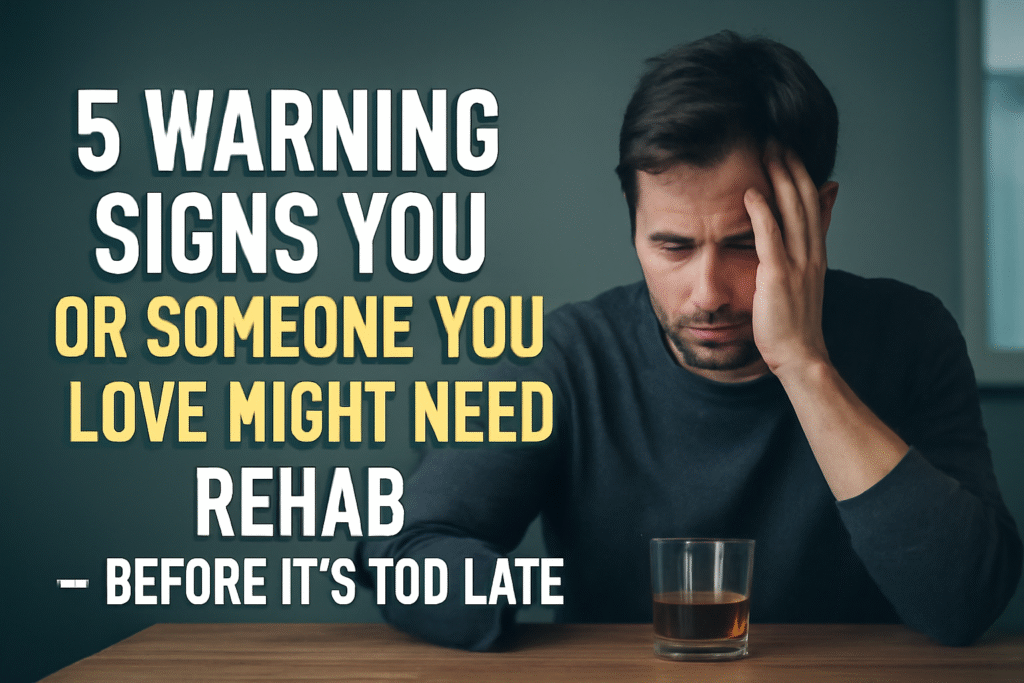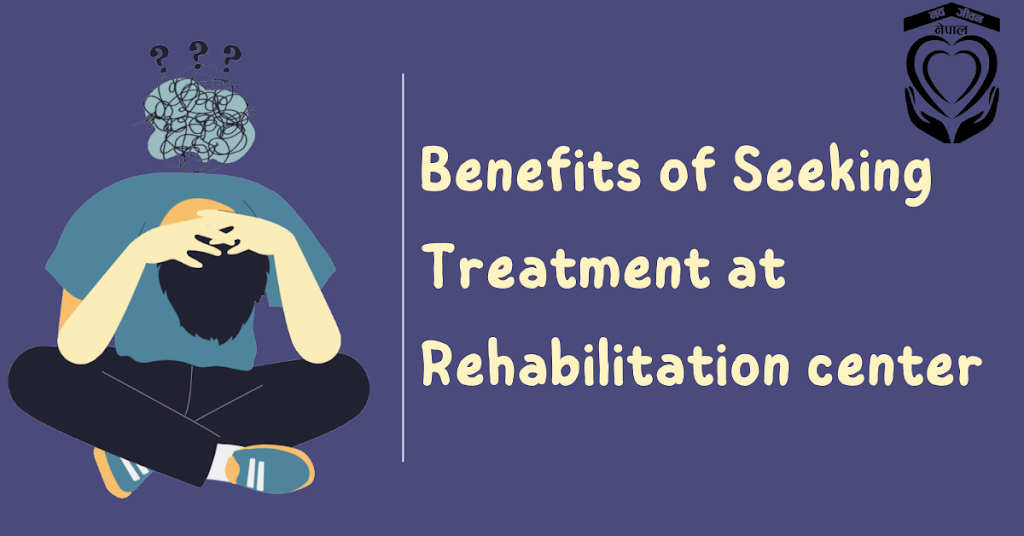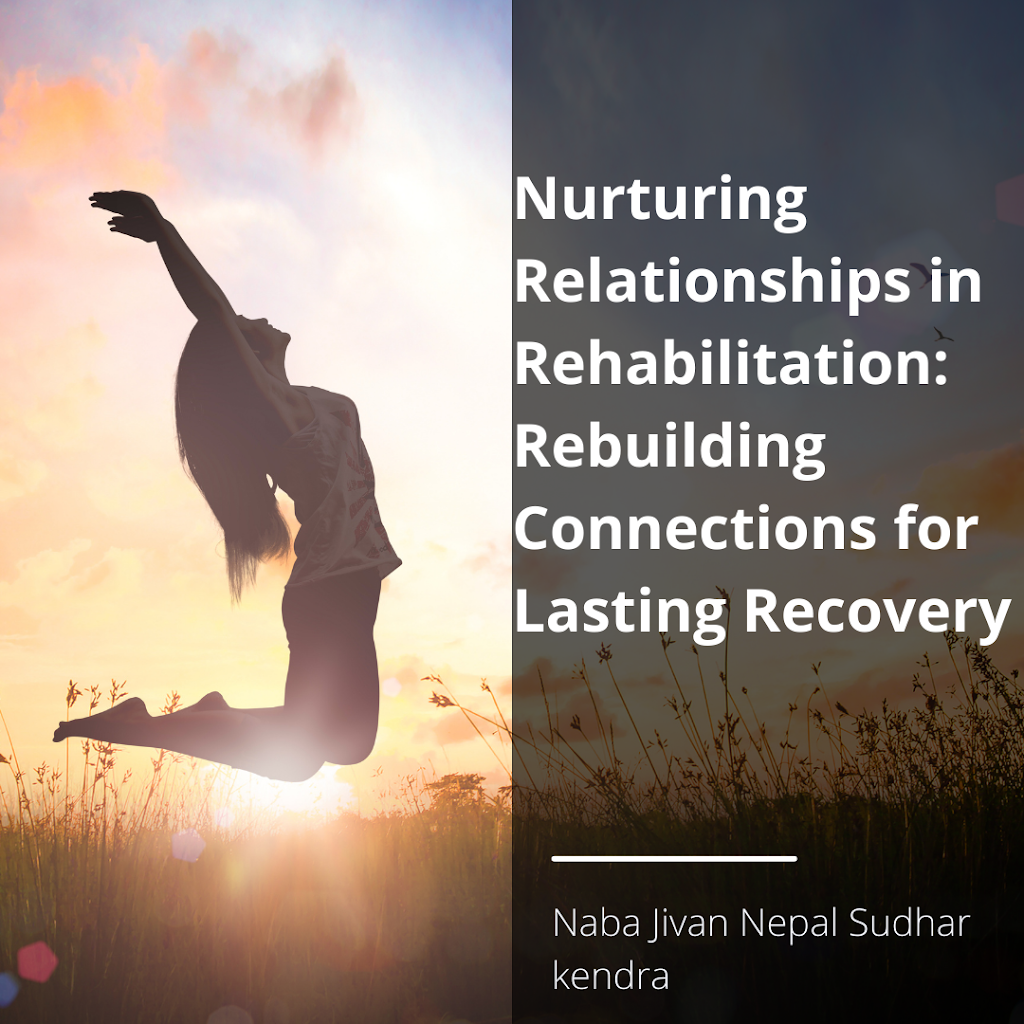
Introduction
Addiction is not always easy to spot.
It often starts subtly, hidden behind stress, social habits, or personal struggles.
Yet over time, addiction can grow stronger, trapping individuals in cycles of pain and self-destruction.
Recognizing the warning signs early is crucial.
The sooner you notice the signs, the better the chances of recovery.
Waiting too long can make treatment harder — and sometimes, it can be too late.
In this article, we’ll uncover five clear warning signs that signal when you or someone you care about might need professional rehab support.
By the end, you’ll know how to spot trouble early — and what you can do about it.
1. Loss of Control Over Substance Use
One of the most obvious signs of addiction is losing control over substance use.
This means a person cannot limit how much they use, even when they want to.
Signs of losing control include:
- Making promises to quit, but failing
- Needing more of the substance to feel the same effect
- Feeling helpless to stop once started
- Drinking or using substances in risky situations
Why it matters:
When the substance is making decisions for you, it is no longer just a “habit.”
It becomes a compulsive need, and rehab becomes essential for regaining control.
Tip:
If you find yourself hiding your usage or lying about it, it’s a strong indicator that control has been lost.
2. Neglecting Responsibilities and Daily Life
Addiction does not stay neatly in one part of life.
It spills over into work, school, relationships, and family life.
Common signs of neglect include:
- Frequent absences from work or classes
- Missing important family events or birthdays
- Struggling to manage bills, chores, or errands
- Letting personal goals slip away
Why it matters:
When substance use starts interfering with daily life, it shows that priorities have shifted.
Left unaddressed, it often leads to financial struggles, relationship breakdowns, and even homelessness.
Remember:
Rehab programs not only address addiction but also help rebuild healthy routines and responsibilities.
3. Physical and Mental Health Problems
Substance abuse doesn’t just affect emotions — it causes visible damage to the body and mind.
Physical health symptoms to watch for:
- Unexplained weight changes
- Bloodshot eyes, shaking hands
- Frequent nosebleeds or infections
- Poor hygiene and neglect of appearance
Mental health symptoms:
- Sudden, intense mood swings
- Anxiety, paranoia, or panic attacks
- Deepening depression or feelings of hopelessness
- Angry outbursts or violent behavior
Why it matters:
Addiction creates a dangerous cycle.
Physical pain increases substance use.
Mental anguish leads to deeper addiction.
Rehab breaks this cycle with medical support and therapy.
Fact:
Dual-diagnosis programs in rehab centers treat both addiction and mental health disorders together for better outcomes.
4. Isolation and Withdrawal from Loved Ones
When someone falls deeper into addiction, isolation usually follows.
They may start withdrawing from friends, family, and social activities.
Signs of social withdrawal:
- Avoiding phone calls and texts
- Skipping social events
- Losing interest in hobbies and activities they once loved
- Spending most time alone or only with people who enable the addiction
Why it matters:
Isolation is dangerous because it removes positive influences.
It also increases feelings of loneliness, shame, and hopelessness — making addiction even harder to escape.
Tip:
If you or someone you know is cutting off important relationships to hide their addiction, it’s time to seek professional help.
5. Engaging in Risky or Illegal Behaviors
Addiction often leads to poor decision-making and high-risk behavior.
This isn’t just about breaking rules — it’s about putting lives in danger.
Examples of risky behaviors:
- Driving under the influence
- Having unprotected sex
- Getting into physical fights
- Engaging in theft or fraud to fund the addiction
- Reckless spending or gambling
Why it matters:
Risky behaviors can have devastating consequences, including accidents, jail time, disease, or even death.
These behaviors show that the person’s judgment is clouded by their addiction.
Fact:
A significant number of people in jails or hospitals are there because of behaviors tied to untreated addiction.
Why Early Rehab Matters
It’s tempting to think, “It’s not that bad yet.”
But addiction is progressive.
It rarely stays the same — it usually gets worse over time.
Getting rehab early helps:
- Reverse physical damage before it becomes permanent
- Heal relationships with family and friends
- Protect careers and education
- Prevent legal troubles and financial ruin
- Save lives
Important:
The longer you wait, the harder recovery becomes.
Early action increases the chances of long-term success dramatically.
How to Help Someone You Love Get into Rehab
If you spot these warning signs in someone you care about, approach the situation with love and patience.
Here’s how to talk to them:
- Choose a calm and private moment
- Express concern, not anger
- Use “I” statements (“I am worried about you” instead of “You need to stop”)
- Listen to them without judgment
- Suggest professional help and offer to assist in the process
Reminder:
You cannot force someone to want recovery.
But you can plant the seed of hope and offer support when they are ready.
Professional interventionists are available if you need help staging a more structured conversation.
Conclusion: Time Is Critical — Act Now
Addiction can feel overwhelming, but hope is never out of reach.
The key is to recognize the early warning signs and act before it’s too late.
If you or someone you love is:
- Losing control
- Neglecting responsibilities
- Experiencing health problems
- Withdrawing socially
- Engaging in dangerous behaviors
— then professional rehab support is not just a good idea, it’s a lifeline.
Recovery is possible.
Change is possible.
A new life is possible.
All it takes is the courage to take the first step — today.



